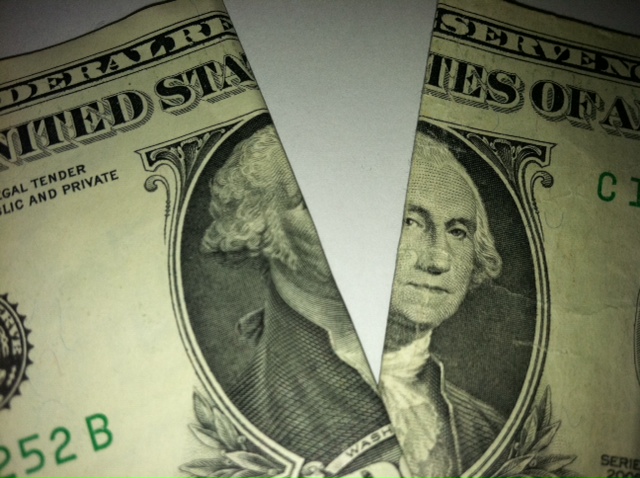The secret has been out for a while that Janey Yellen and the Federal Reserve are going to begin hiking interest rates. There remains a debate over how soon this will start, and how much rates will actually rise. Investors have to consider how this will impact corporate profits, the stock market, and their overall portfolios.
If Fitch is correct, investors should expect that a rate hike, or hikes, will cause at least modest corporate discomfort. Fitch issued a report showing that higher rates should increase the cost of borrowing – bringing lower profits and causing slower growth. 24/7 Wall St. has a base case calling for the markets being easily able to absorb what is likely heading this way.
Still, there is some good news here. While higher rates might cause some discomfort, Fitch specified that it continues to believe a gradual rise would have limited impact for corporate credits as a whole. One driver is the offsetting economic growth, and another driver is the aggressive refinancing many companies have used to push out debt maturities to longer dates and with lower coupon rates.
Still, Fitch’s report did leave the room open for a downside case:
In contrast, under our stress case scenario, rapid interest rate increases by the Federal Reserve would put additional pressure on credit metrics and could prompt more rating changes. Our stress case scenario includes more rapid rate increases, a choking off of near-term credit, a flattening of the yield curve and a spike in inflation. Against a backdrop of increased M&A activity, interest rate pressure could also impair the financial flexibility of buyers as acquisitions become more expensive to finance.
The secondary effects of a stress scenario are also important, as rising rates in a stagnant economic environment are likely to dampen equity values.
Fitch further outlined that some sectors are better off than others. Those which have cost recovery mechanisms (such as utilities and master limited partnerships) or strong pricing power (such as aerospace & defense, engineering & construction) should generally be the best able to counter the challenges in the stress case.
Sectors with limited pricing power, with homebuilders being used as the example, may encounter more issues. Also, sectors where ongoing access to capital markets is critical for funding growth, such as REITs and MLPs, would likely be very sensitive to the stress scenario given their high distributions and limited ability to retain cash.
ALSO READ: 10 Companies to Own for the Next Decade
The base case from 24/7 Wall St. is currently that the available data points to a period where a true soft landing may take place. It seems unlikely that the market is going to get destroyed by higher interest rates. The FOMC likely knows that the economy (for companies and consumers alike) just is not so strong that it can support massively higher interest rates. Does Janet Yellen want to be known as the Fed Chairperson who crushed the financial markets and wrecked what was already the weakest post-WWII recovery?
Are You Ahead, or Behind on Retirement? (sponsor)
If you’re one of the over 4 Million Americans set to retire this year, you may want to pay attention.
Finding a financial advisor who puts your interest first can be the difference between a rich retirement and barely getting by, and today it’s easier than ever. SmartAsset’s free tool matches you with up to three fiduciary financial advisors that serve your area in minutes. Each advisor has been carefully vetted, and must act in your best interests. Start your search now.
Don’t waste another minute; get started right here and help your retirement dreams become a retirement reality.
Thank you for reading! Have some feedback for us?
Contact the 24/7 Wall St. editorial team.


